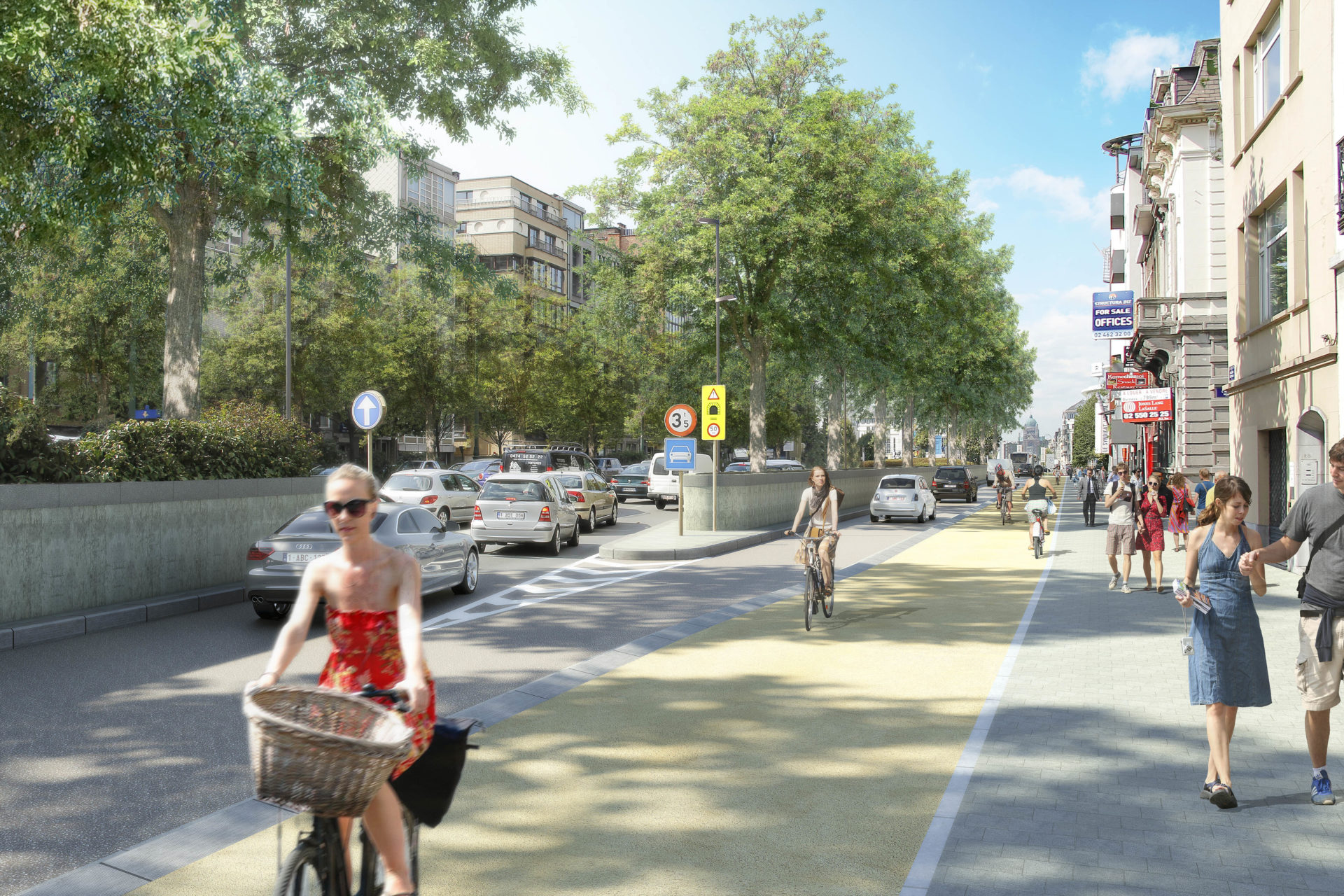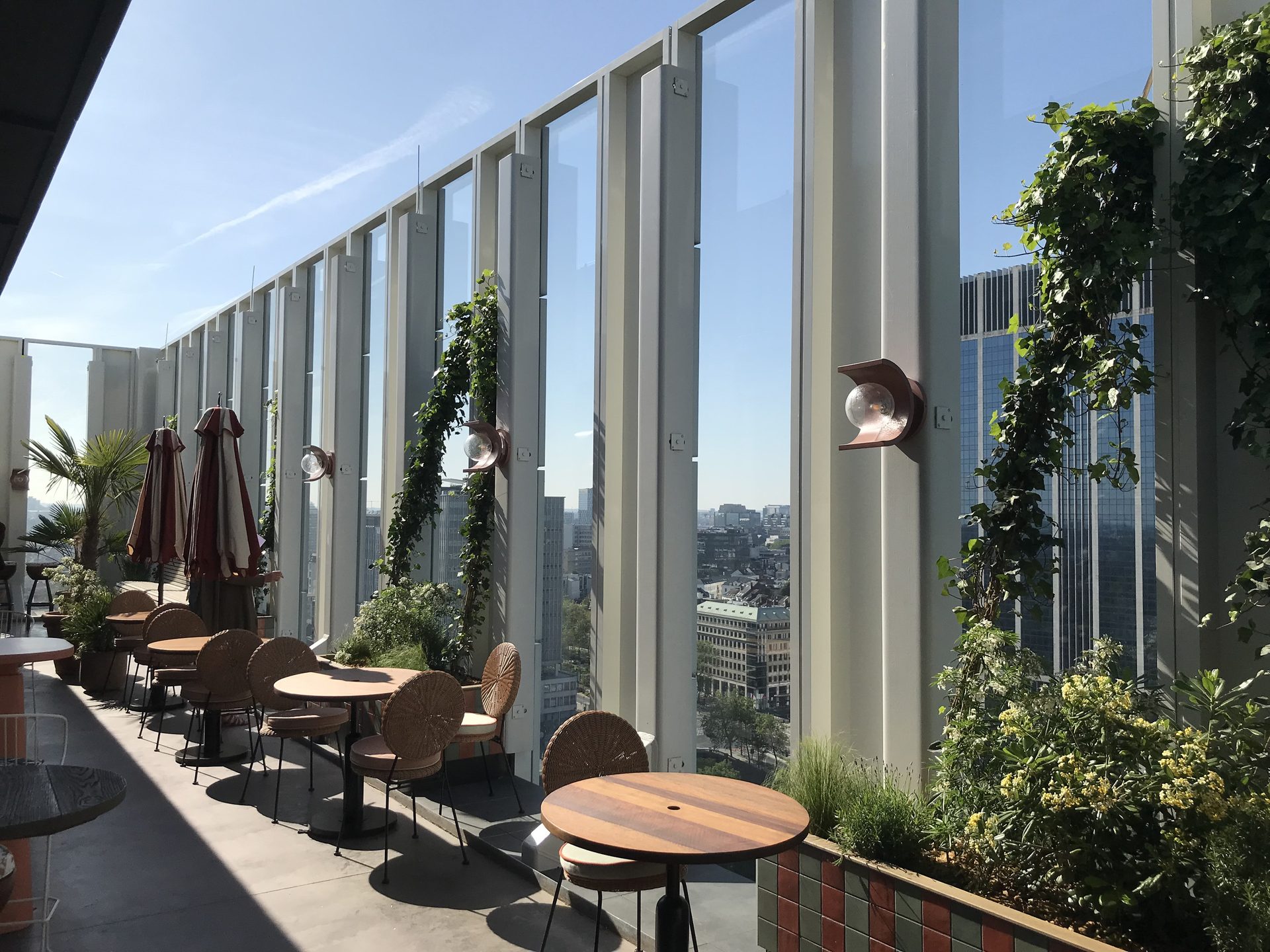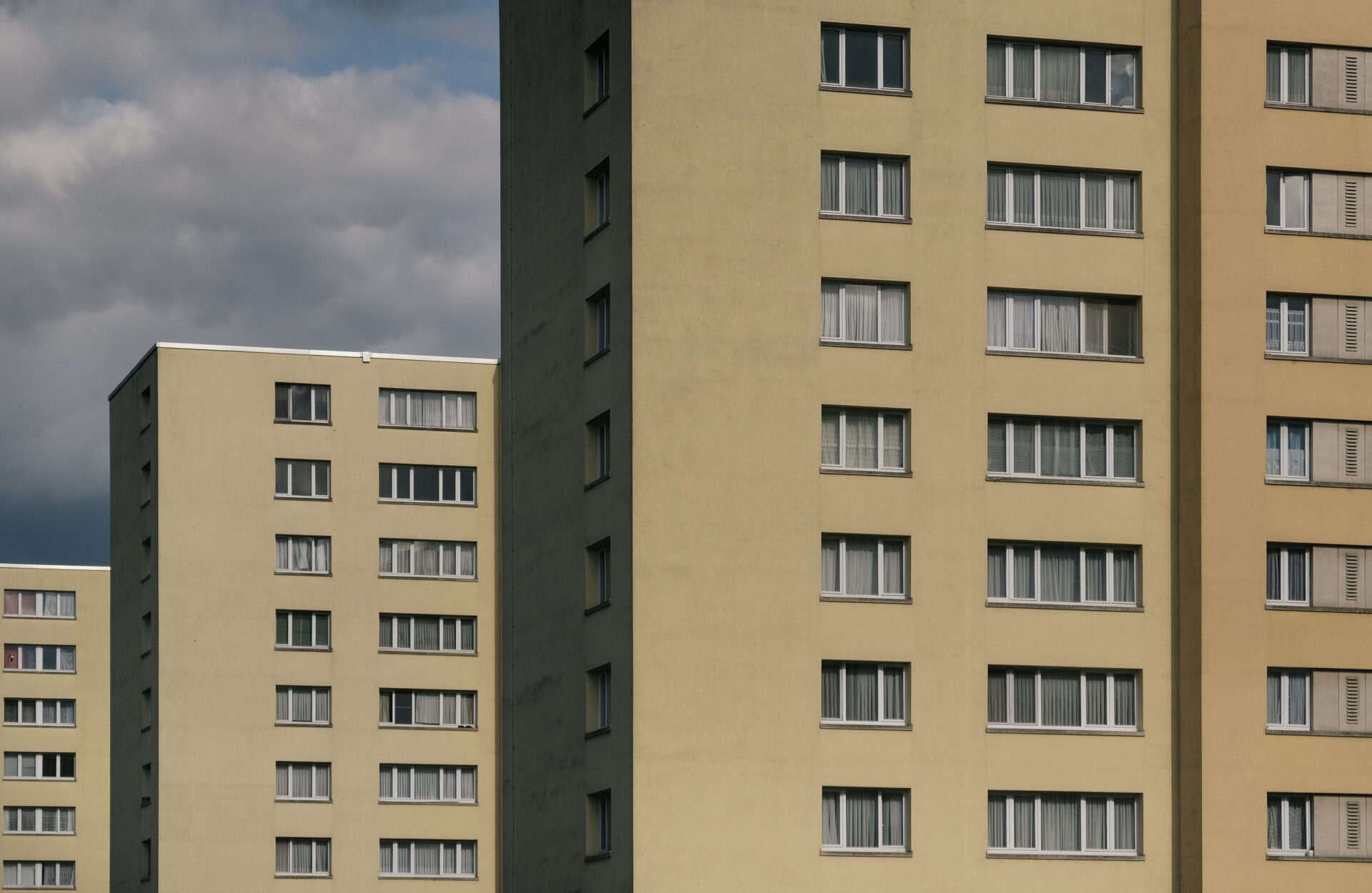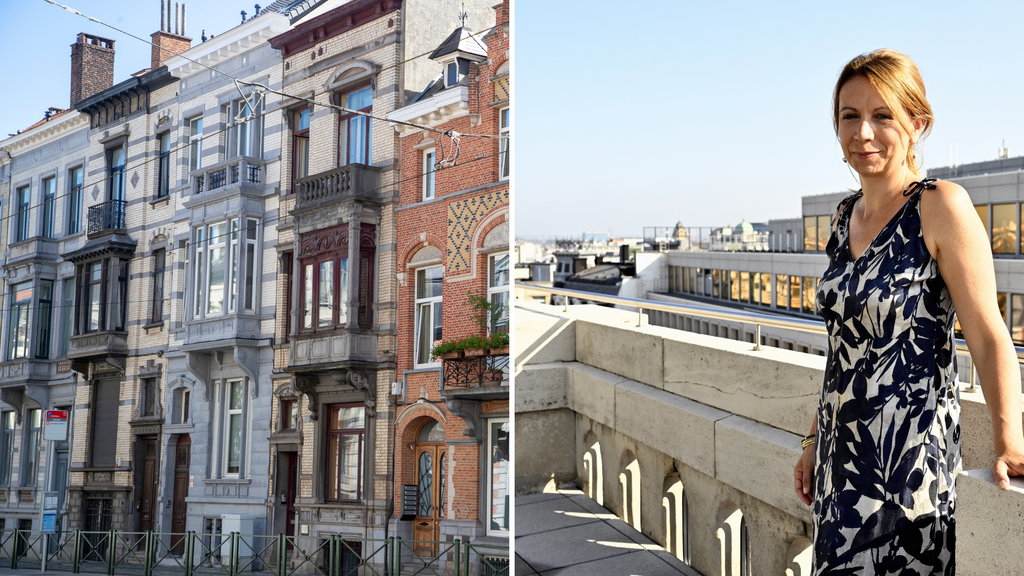The Brussels Government is on a mission to make the region more liveable, however the rising cost of housing raises the question of who will be able to afford to live there.
From reversing the Manhattanisation of the Brussels North Quarter to reviving Avenue Louise's "role as an important green promenade," the region has taken giant leaps to ensure neighbourhoods are inviting and attractive, not only for tourists but crucially for the capital's residents.
The Good Living policy is the base for this paradigm shift. It changes the government's approach to planning regulations by laying down certain conditions and necessities for public spaces in the regional planning regulation (RRU).

An illustration image showcasing the changes that will structurally be made under good living. Credit: Office of Pascal Smet
"The focus is making public spaces future-proof by finding a better balance between all road users, planting more trees, ensuring more permeability and more energy-efficient buildings, among other things," Ans Persoons, the current State Secretary for Town Planning and Heritage, told The Brussels Times.
Security at what cost?
If approved by the Brussels Government, the Good Living policy would ensure that the current drive to make the city more liveable continues, even if someone takes over Persoons' role. She explains that the energy behind the vision comes not only from city authorities but also the architects working on the projects.
Persoons stresses the aim to improve the safety of certain neighbourhoods, especially around the North and South stations. "The sense of insecurity here are the result of many problems, but there is a link with urban planning. As mono-functional neighbourhoods – where the ground floors are not occupied and many commercial buildings are empty much of the time – the feeling of being unsafe grows."

Rooftop restaurant on the Victoria Tower in Brussels Northern district. Credit: Belga / Adrian Burtin
To address the issue, former office blocks around North Station are being transformed into multifunctional buildings with hotels, residential flats and shops initiated this shift. "Will that solve all the safety problems here? Probably not, but it is an important way of activating a solution."
But some fear that not only will this not entirely solve the problem, it will generate a new one. Gentrification.
Pushing people out?
Gentrification is a major challenge faced by any large city. "The question here is how you ensure that you can make neighbourhoods more attractive to live in without forcing out the people living there before the transformation."
This urban problem is one that particularly affects Brussels, as the housing and rental prices are the most expensive in Belgium but the average annual income is the lowest (the average annual income is €15,444, meaning many people's wages fall below this amount). Persoons acknowledged this difficulty and recognised the need to create affordable housing for this reason.
Not only is the social housing market in crisis to ensure the most vulnerable households can have a roof over their heads – there is currently a waiting list of 50,000 people and old buildings are in desperate need of repair – but there is also growing pressure on the lower middle class in the region.

Social housing apartments. Credit: Belga / Dirk Waem
"For many people, Brussels has long been unaffordable. Now also for people in the lower middle class, such as nurses, catering staff, and police officers. There are people who are very much needed and there is a real shortage of them now, so that is very problematic for a capital city."
"We risk ending up like Paris or London, where they are pushed out by high rents. It is so important that we stop this evolution to make sure that they can continue to live here."
Related News
- Linking Tour&Taxis to city centre: New tram comes closer to reality
- 'Greener, safer, quieter': Brussels looks into complete redesign of Avenue Louise
Persoons is eager to make affordable housing a greater focus of the Good Living Policy. She supports a minimum level of social housing in large developments by the private sector. In addition to the classic flats, she favours the idea of alternative forms of living, such as collective housing. It would also help people get onto the property market.
Targeted taxes and specific regulations would help to redress the imbalance in prices. But this goes beyond the remit of the Good Living policy and would need to be tackled with other legislative ordinances.
"Housing has become a financial product and people are making a lot of money out of it. As far as I'm concerned, people can continue to make money in this way, but not at the expense of a fundamental right, which is that residents need to have a decent roof over their heads," Persoons said. "We need to balance that out a bit more."

